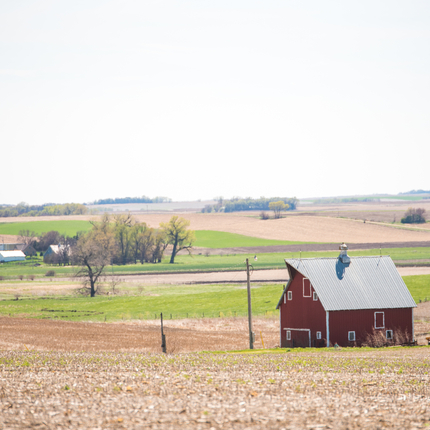By Kate Hansen, former staff member
For farmers across the country, the first months of a new year mean thinking about planting their next crop. For many, it also means thinking ahead to the deadline to sign up for federal crop insurance.
Generally, federal crop insurance refers to a set of programs available for agricultural producers to protect against crop or revenue loss. Programs are administered by the U.S. Department of Agriculture, and individual insurance policies are sold by private agents in every state. Data from the most recent Census of Agriculture shows that hundreds of millions of acres across the country are insured with federal crop insurance programs.
Plans must be selected by a set deadline, known as the sales closing date. For most spring-planted crops in the Midwest and Great Plains region, the deadline is March 15.
At the Center for Rural Affairs, we view crop insurance as one of the tools in a producer’s toolbox to manage risk. It is important to us that operations of all shapes and sizes have the information they need to make the best decisions for them.
As such, we are ready to assist producers wanting to learn more about their options before the sales closing date.
Over the years, the Center has developed resources and offered educational opportunities about crop insurance for a wide range of operation types. We have worked alongside row crop producers, diversified fruit and vegetable growers, and many in between.
We know federal programs are complicated and constantly changing. For 2023 alone, numerous programs have been introduced or adjusted. Producers practicing conservation, as well as those with smaller, diversified, or organic operations, are among those that can expect to see different options available.
Support from Center staff is free and voluntary. If you have questions about your options or want to learn if crop insurance is available for your operation, we encourage you to reach out to 515.215.1294 or [email protected].





